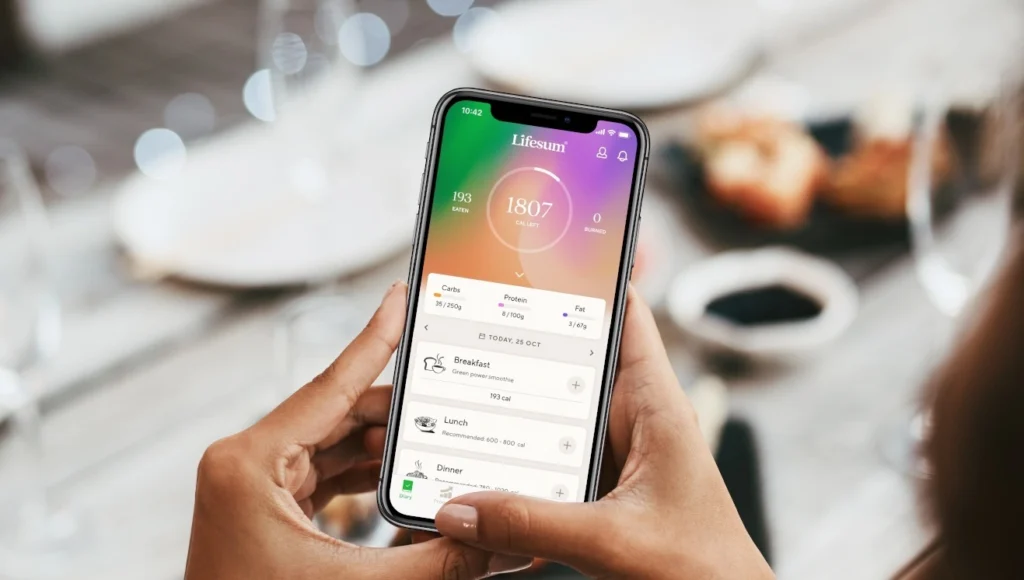Gen Z, Millennial Employees Prioritize Workplace Wellness

Lifesum survey data reveals that young consumers increasingly expect employers to support them on their health and wellness journeys
Workplace stress is experienced by 52% of Gen Z and millennials, with 51% stating that their personal life is affected by work-related stress always or most of the time, a new survey from Lifesum reveals. The global healthy eating platform, which has been tapped to serve GE, Google and Amazon employees, is encouraging employers to take measures to support staff — a move that Lifesum says is mutually beneficial.
The findings are based on a Lifesum October survey of over 5,000 U.S.-based Gen Z and millennial employees to explore how they make career decisions based on personal values.
“Burnout, layoffs and the cost of living crisis impact stress, but it won’t stop people from job-hopping,” said Wesleigh Roeca, director of business development at Lifesum. “Gen Z and millennials are telling us that factors, including healthy eating initiatives, help them — and for good reason, given that scientific evidence shows how a balanced diet can support a healthy immune system and provide the extra energy to deal with stressful events.”
Ultimately, Lifesum’s findings underscore that workplace health and well-being are imperative to the success of companies and their staff. Not only would 48% of survey respondents quit tomorrow in favor of a job supporting their wellness, but 69% said they’d be more productive if their employer took measures to improve their health and well-being.
Creating a Culture of Workplace Well-Being
“Gen Z and millennials care deeply about their health and well-being and are passionate about finding a job that aligns with their personal values,” added Roeca. “Scientific evidence, including a recent McKinsey Health Institute study, shows how healthy eating leads to improved cognitive functioning and reversal of type 2 diabetes — all of which impacts workplace outcomes.”
The results should make employers take note — but with some simple measures such as positive management, healthy eating initiatives, proper compensation and mental health support, employees are more apt to feel supported and experience reduced stress levels.
Although many companies are beginning to provide employees with access to well-being tools and actionable resources such as Lifesum, the report indicates there is still a long way to go, as nearly 64% of respondents feel their employer doesn’t have a “well-being culture.”
One surprising survey result from Lifesum’s research was that 35% of female Gen Z and millennials would quit their job tomorrow in exchange for one that better supports their monthly cycle.
It’s a finding to which Lifesum has been calling attention in the crowded corporate wellness industry: that hormonal health has a profound impact on everyone, with menopause alone costing American women an estimated $1.8 billion in lost working time per year. Lifesum also cites an additional finding revealing a million women in the U.K. left their jobs due to the symptoms of menopause.
“Hormones regulate every process in the body, including stress and productivity, meaning employers risk losing top talent if they don’t offer support, such as fertility planning and hormonal health,” Roeca said. “Everyone has hormones and that’s why our Hormonal Health Plan works for all genders.”

Young Workers Want Flexibility
Lastly, despite many major corporations diminishing remote work in favor of fully in-office models or a scaled-down version of a hybrid model — Lifesum’s research shows Gen Z and millennial workers want their employers to continue granting flexibility, and 41% would seek another job if a hybrid model wasn’t on the table.
As Roeca points out, flexibility is “hugely motivating,” and it’s a factor employers should consider when attracting and retaining talent. Most importantly, regardless of an employer’s decision — remote, hybrid or in-office, they can still support staff with wellness programs and see a guaranteed return on engagement and productivity.
Courtney Rehfeldt has worked in the broadcasting media industry since 2007 and has freelanced since 2012. Her work has been featured in Age of Awareness, Times Beacon Record, The New York Times, and she has an upcoming piece in Slate. She studied yoga & meditation under Beryl Bender Birch at The Hard & The Soft Yoga Institute. She enjoys hiking, being outdoors, and is an avid reader. Courtney has a BA in Media & Communications studies.



